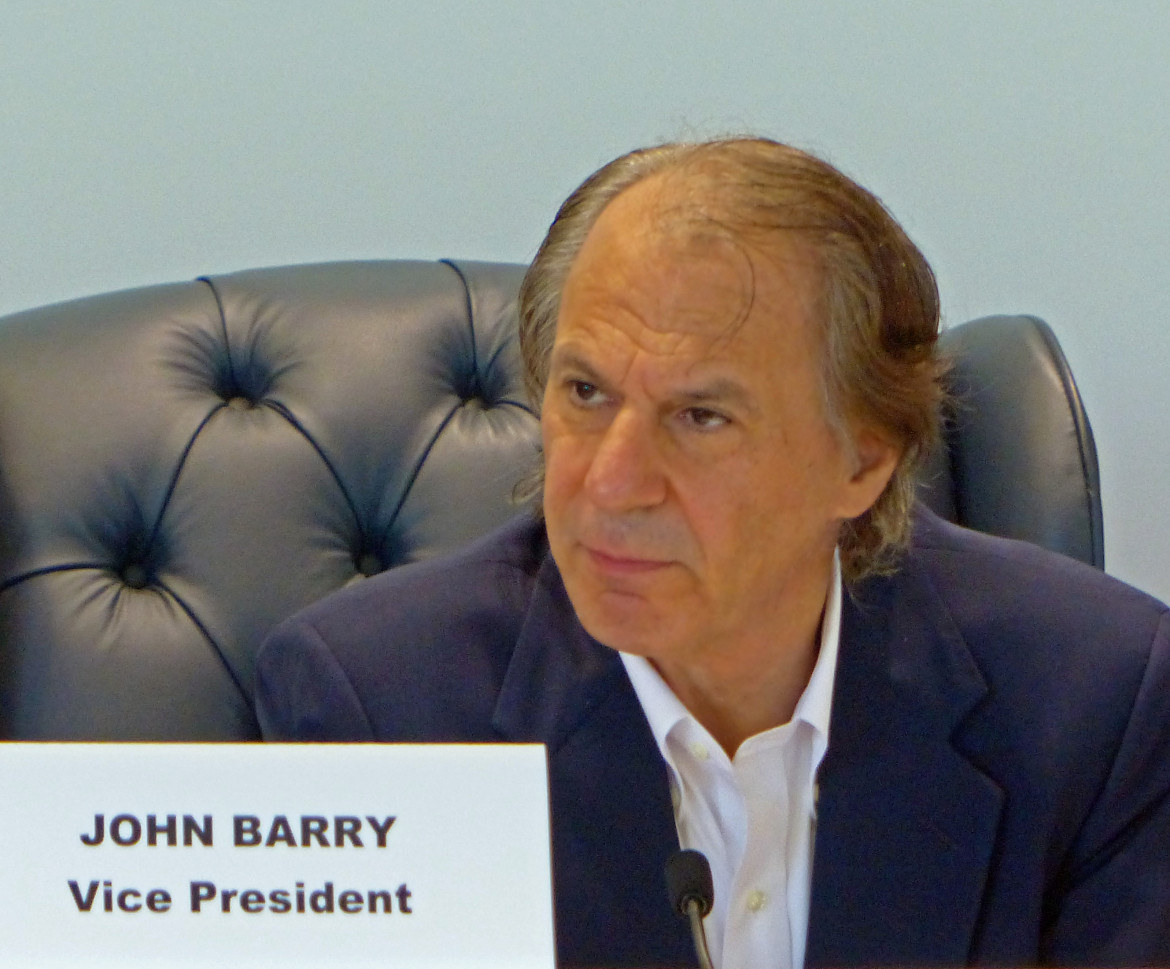Just minutes after John Barry was officially replaced Thursday on the local levee authority — a reprisal from Gov. Bobby Jindal after Barry led the agency’s effort to sue oil and gas companies for coastal damage — he announced his plans to continue pushing that suit by forming a citizens group for that purpose.
Barry said the future nonprofit would concentrate first on lobbying the Legislature to head off Jindal’s plans to torpedo the suit. The author and historian said he is joining an effort others in the metro area already started, some of whom believe there are enough votes in the Legislature to block Jindal. He declined to name the others.

“If you actually do a pretty careful count [of the lawmakers], the numbers are not as bad as people think they are,” he said. “I’ve been told this by people who know how to count the Legislature.”
Barry’s announcement came shortly after his seat as the Orleans Parish representative on the Southeast Louisiana Flood Protection Authority — East was taken by Joe Hassinger. He’s a lawyer who stepped down as chairman of the Non-Flood Protection Asset Management Authority to accept the seat.
Hassinger was sworn in along with two other new members, Madisonville engineer Kelly McHugh, who is taking the St. Tammany Parish seat, and Jeff Angers, a Baton Rouge resident who is president of the Center for Coastal Conservation, a sport-fishing lobby group. Garret Graves, Jindal’s wetlands point person as head of the Coastal Protection and Restoration Authority, told The Advocate yesterday all three were appointed after telling Jindal they oppose the lawsuit.
The regional levee authority was established as an independent political subdivision of state government by a constitutional amendment that was the result of a reform movement when post-storm investigations linked causes of Hurricane Katrina’s flooding to poor performing levee boards. The reformers hoped to keep politicians out of flood protection, and the idea passed with 82 percent of the vote. Candidates for the nine-member board are recommended to the governor by a nominating committee consisting of professional engineering organizations, academics and good-government groups.
The process flew under political radar until August when the board decided the only way it could meet future expenses was to sue oil and gas companies for their role in increasing storm surge by destroying wetlands.
Jindal immediately objected. With three seats coming open, said he would not approve any nominees who supported the suit. The nominating committee surrendered to that promise, choosing not to renominate Barry, the vice president, specifically for that reason.
Tim Doody, the Flood Protection Authority’s board president and St. Bernard Parish representative, has not been replaced even though he supports the lawsuit. The nominating committee gave Jindal the choice of Doody or retired judge David Gorbaty. If the governor doesn’t like either choice, Doody continues to serve.
Barry noted the three new members on the board would not result in killing the suit because it had proceeded with a unanimous vote of the previous nine-member board. He also believes Jindal would not be able to change that calculus before his term in office expires next year.
“Right now it’s 6-3, and even if you lose one it would still be 5-4, and I think what means is that a majority of the board will survive Jindal’s governorship, even after the round next year because they only have one other seat to fill,” he said.
That turns the focus of the as-yet-unnamed group to the educating lawmakers and the public, Barry said.
“The first priority, I believe, will be the lawsuit, so our focus is going to be the problems created largely by the oil and gas industry throughout the state,” Barry said.
“The industry has been doing stuff to help, but if you add it all up, it’s been million or tens of million [spent], but if you add up the damage statewide, it’s in the tens of billions. So in the best case, it’s a tenth of a penny on the dollar, what they have been doing to help compared to their liability. And in the worst case, it might be a hundredth of a penny to the dollar, maybe less than that.
“The state knows that the industry it has caused a remarkable amount of damage, and I don’t see how anyone can — when presented with the actual facts — not support it, unless they are bowing to an entirely unrelated agenda.”
